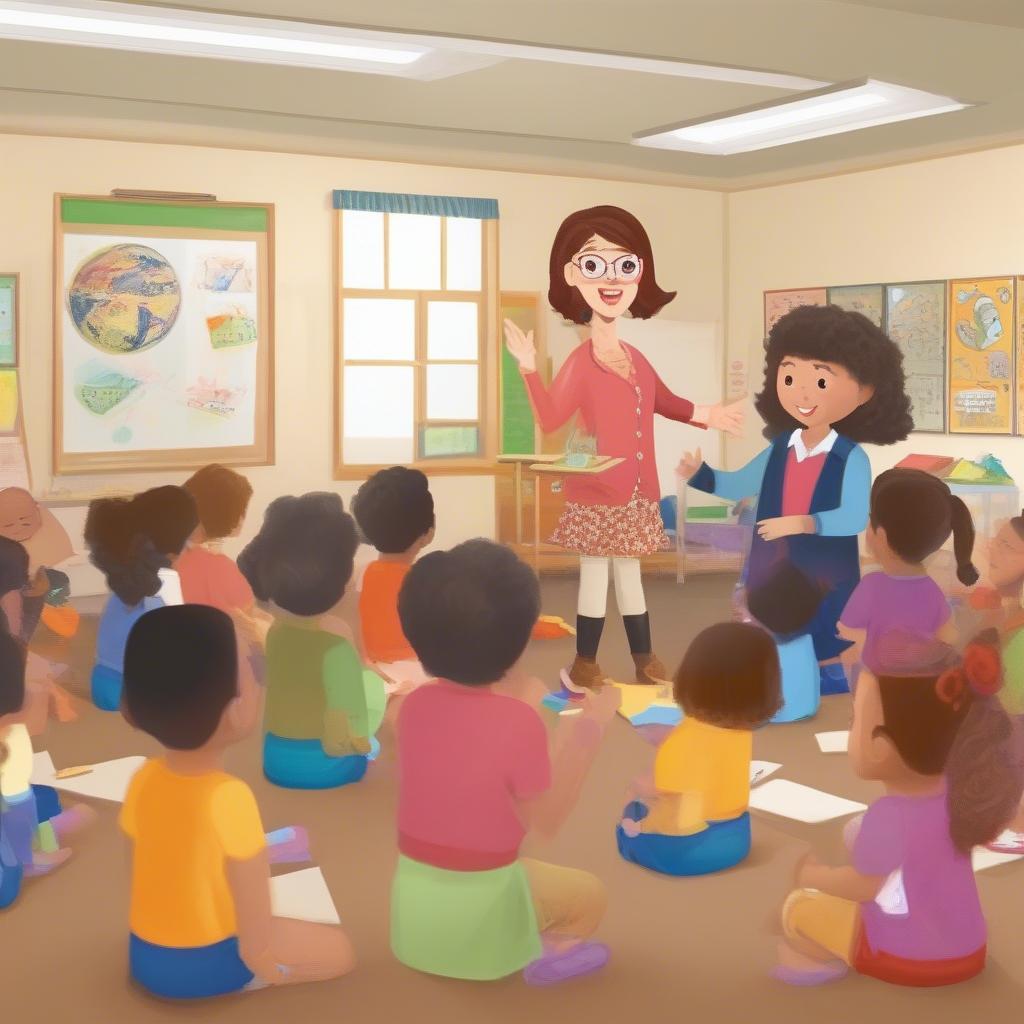“To grow straight, a tree needs good soil; for children to excel, they need excellent teachers.” This age-old proverb highlights the importance of teachers, especially preschool teachers – the ones who sow the seeds of knowledge and nurture the future generations of the nation. So, how can preschool teachers become even “better,” making children’s education more effective and inspiring? This article will help you understand more about the preschool teacher professional development plan – an essential toolkit that helps teachers become more confident and creative in guiding young children into the world of knowledge.
Professional Development Plan: A Journey to Enhance Preschool Teacher Competence
Concept and Importance
A preschool teacher professional development plan is a program designed to enhance the professional qualifications, pedagogical skills, and updated knowledge of preschool teachers, helping them become more confident, creative, and effective in their teaching roles.
Why is a Professional Development Plan Necessary?
Preschool education is a foundational stage, playing a crucial role in the comprehensive development of children. The knowledge, skills, and pedagogical techniques that preschool teachers are equipped with directly impact the physical, intellectual, emotional, and social development of children.
- Current Situation: In the context of increasingly developed society, the demand for quality preschool education is rising. However, many preschool teachers still lack experience, knowledge, and pedagogical skills.
- Limitations: This leads to teachers struggling to access advanced teaching methods, lacking classroom management skills, and not being able to apply information technology in teaching.
- Solution: A professional development plan is a necessary solution to overcome these limitations.
Main Content of the Professional Development Plan
The preschool teacher professional development plan includes many contents, focusing on key objectives:
Enhancing Professional Knowledge
- Knowledge of Child Psychology: Understanding the psychological characteristics of preschool children at each age group helps teachers grasp their psychology, needs, and appropriate approaches.
- Teaching Methods: Introducing advanced teaching methods suitable for preschool age, such as: project-based learning, integrated learning, experiential learning, and learning through play.
- Knowledge of Preschool Education: Updating knowledge of advanced preschool education, modern education trends, and early education methods.
Developing Pedagogical Skills
- Communication Skills: Effective communication skills, creating good relationships between teachers and children, helping children feel comfortable, confident, and proactive in learning.
- Classroom Management Skills: Effective classroom management methods, creating a fun, safe, and effective learning environment.
- Information Technology Application Skills: Skills in using information technology, applying educational software, designing e-lectures, etc., helping teachers improve teaching effectiveness.
Professional Development Methods
Traditional Methods
- On-site Learning: Short-term training courses at pedagogical colleges, education centers.
- Learning from Colleagues: Exchanging experiences, consulting lesson plans, participating in professional activities, lesson observations, etc.
Modern Methods
- Online Learning: Participating in online courses, watching instructional videos, online materials, professional forums, etc.
- Learning in Developed Countries: Participating in academic exchange programs, research, internships at preschools in developed countries.
Integrating Spiritual Elements in Professional Development
“Kind hearts bring abundant nature” – a Vietnamese spiritual concept that emphasizes kindness, love, and tolerance, is the foundation for educating children. Integrating spiritual elements into the professional development plan helps teachers:
- Enhance Professional Ethics: Understanding the role and responsibility of a teacher, loving children, and being dedicated to the profession.
- Develop Application Skills: Teachers have positive, patient, and respectful attitudes towards children, creating a healthy educational environment, helping children develop comprehensively.
Conclusion
The preschool teacher professional development plan is an important tool to improve the quality of preschool education, contributing to the development of children. For this plan to be effective, serious investment is needed from schools, the dedication of teachers, and close coordination with parents.
Do you want to learn more about the preschool teacher professional development plan? Leave a comment below so we can assist you!
